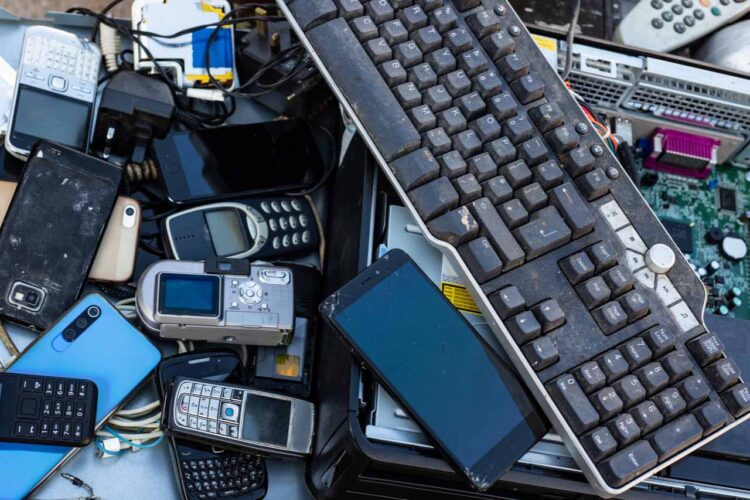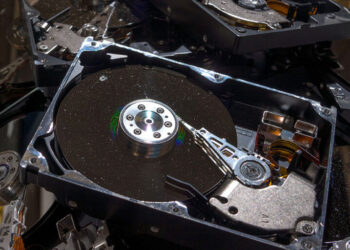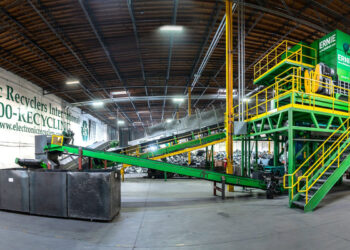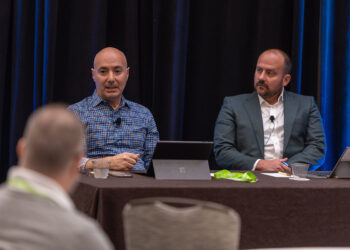As Alberta’s electronics recycling program looks to grow, e-scrap processors are planning to buy equipment and hire staff to handle an expected doubling of incoming tons.
The Alberta Recycling Management Authority (ARMA), the stewardship group that runs the oldest e-scrap recycling program in Canada, announced it will add several categories of electronics and small appliances to the program starting later this year. The expansion is part of a two-year pilot project.
Started in 2004, ARMA’s program receives money from fees consumers pay when they buy new TVs and computer equipment. The group funds collection and recycling of TVs and monitors, computers and servers, laptops and tablets, computer peripherals, printers, copiers, scanners and fax machines.
Through the two-year program, estimated to cost 43 million Canadian dollars (nearly $32 million), ARMA will add to the list the following categories: small home appliances, audio and video equipment, cell phones and other wireless devices, gaming equipment, toys, musical instruments, power tools and solar panels.
Ed Gugenheimer, CEO of ARMA, said the expansion is expected to basically double the amount of covered material handled each day, bringing in an additional 12,300 metric tons per year.
“That’s a massive amount of diversion from landfill,” he said.
Pilot to inform possible permanent program expansion
ARMA pays collectors and processors for managing covered devices. About 365 municipal and indigenous collectors supply covered material to six processors for recycling. During the 2018-19 program year, the program recycled over 10,100 metric tons of material generated in Alberta, population 4.4 million. As is the case with other mature programs in North America, the weight has been decreasing as fewer CRT devices enter the end-of-life stream.
The 16-year-old program is working really well, Gugenheimer said, but the categories of electronics covered have remained limited since it started.
ARMA brought a plan for a pilot expansion project to the province’s Minister of Environment and Parks, Jason Nixon, who issued an order approving it, Gugenheimer said. “This is something that’s been a long time coming in the province,” he said. “It’s very exciting for us. We know that the province ministry is pretty stoked about it.”
ARMA has built up a “war chest” to fund the project, meaning it won’t charge environmental fees on purchases of the newly added products during the two years of the pilot project. “We’ll be funding the whole thing, so it’s no impact to consumers,” Gugenheimer said.
On May 29, ARMA closed on a request for proposals to hire a firm that will help set up the pilot project in a relatively short period of time. When it starts, ARMA will bring a project manager on staff to help run it, Gugenheimer said.
During the two years, ARMA wil gather data to help inform a permanent expansion, which could start in 2023. Gugenheimer noted ARMA will gather data in a number of areas: capture rates for different types of devices, processing requirements and costs for recycling different devices, end markets for commodities, and more.
“By doing all this studying, we’ll be able to understand what the true cost of recycling is,” Gugenheimer said. That information will help program managers understand at what levels to set environmental fees on devices when they’re permanently added to the program.
Processors prepare for investments
An economic impact assessment showed that the boost in material will roughly double the number of jobs supported by the program through the hiring of 360 full-time equivalent positions for collection, transportation, processing and manufacturing.
Already, processors are preparing for the onslaught of material entering their facilities by retrofitting their lines, Gugenheimer said. ARMA contracts with two large processors, eCycle Solutions and Quantum Lifecycle Partners, and four smaller ones.
Clayton Miller, vice president of business development-EOL at Quantum Lifecycle Partners, applauded ARMA’s leadership with regard to the expansion project. He noted that it creates a better environmental outcome and creates jobs at a time when Alberta is struggling from both the oil downturn and COVID-19 impacts.
“ARMA really stuck their neck out and lobbied hard at the government level to make this happen as quickly as it happened, and we are really appreciative,” Miller said.
Quantum Lifecycle Partners, which has an end-of-life-focused facility in Edmonton and an ITAD-focused facility in Calgary, will invest in additional collection infrastructure to the tune of hundreds of thousands of dollars, Miller said. It will also likely buy additional processing equipment, although the company will wait to see how the pilot project plays out before making long-term investments in big processing infrastructure, he said. The company also expects to hire at least 10-20 new positions, and maybe more.
Miller said he encourages ARMA to maintain high standards for processing and not allow the expansion to result in a lower overall processing standard. He also encouraged Ontario, which is revamping its extended producer responsibility (EPR) programs, to follow Alberta’s lead. Quantum Lifecycle Partners has four processing facilities across Ontario, which has a population of about 14.7 million.
“Alberta has seen that expansion of this program has both positive environmental outcomes and positive economic outcomes, and as Ontario considers the regulations for their new EPR structure, we hope that they look to what Alberta is doing and can continue down the path of more products and strict standards,” Miller said.
Another processor that plans to ramp up facility operations is Hi Tech Recyclers, based in Edmonton.
“This comes as welcome relief during uncertain times with COVID-19 and the impacts it has had on our economy and the many lives of Albertans who are now unemployed,” Mark Schell, president of Hi Tech Recyclers, stated in a press release. “Beyond our ability to provide more direct and indirect jobs through an expanded electronics recycling program is the fact that this announcement from the province means we are one step closer to keeping all electronics out of the local and global waste stream.”

























